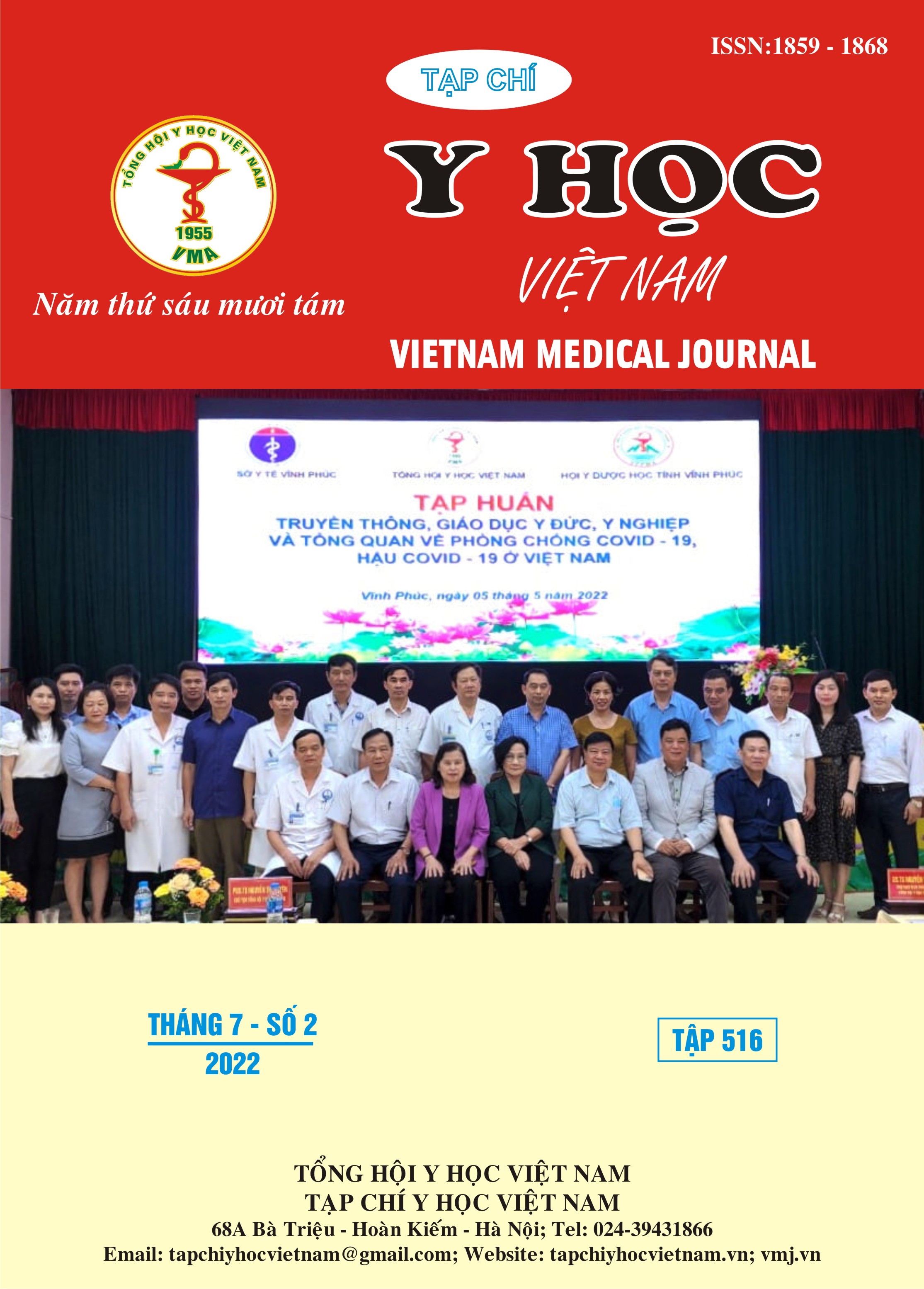VALUE OF HCV CORE ANTIGEN TEST IN SCREENING FOR HEPATITIS C VIRUS
Main Article Content
Abstract
Objective: To determine the sensitivity and specificity of the HCV core Antigen test and to evaluate the correlation between the concentration of HCV core Antigen and HCV RNA. Subjects and methods: A cross-sectional descriptive study was performed on 102 inpatients and outpatients who came for hepatitis C screening at Nguyen Tri Phuong hospital from February, 2022 to June, 2022. HCV RNA assay was performed by real-time RT-PCR with the IVD NK RTqPCR-Vcquant KIT biological kit, HCV core Ag assay was performed using the CMIA technique with Abbott's reagent kit. HCV RNA test has been used as gold standard. To determine the sensitivity and specificity of the HCV core Antigen test and to evaluate the correlation between the concentration of HCV core Antigen and HCV RNA. Results: The sensitivity and specificity of HCV core Ag were 93, 3% and 91,7%, respectively, at a cutoff value of 3.03 fmol/L, the area under the ROC curve was 0.925 (92,5%) (95% CI 0,92-0,99). There was a mean positive correlation between HCV core Ag and HCV RNA (r= 0,64; p<0,001). Conclusions: HCV core Ag test had high sensitivity and specificity, and had a mean positive correlation with HCV RNA test. This was a valuable test and can be applied in the screening of HCV in Vietnamese patients.
Article Details
Keywords
Sensitivity, specificity, HCV core Antigen, HCV RNA
References
2. Nguyễn Thị Băng Sương, Bùi Hữu Hoàng, Nguyễn Hữu Huy, Bắc Nguyễn Hoàng (2020), "Đánh giá mối tương quan giữa nồng độ HCV core Ag và HCV RNA", Tạp chí Y học Thành phố Hồ Chí Minh. 24, tr. 16-19.
3. Buket C. A., Ayse A., Selcuk K., Suleyman O.,Emel S. C. (2014), "Comparison of HCV core antigen and anti-HCV with HCV RNA results", Afr Health Sci. 14(4), pp. 816-20.
4. Cloherty G., Talal A., Coller K., et al. (2016), "Role of Serologic and Molecular Diagnostic Assays in Identification and Management of Hepatitis C Virus Infection", J Clin Microbiol. 54(2), pp. 265-73.
5. Kamili S., Drobeniuc J., Araujo A. C.,Hayden T. M. (2012), "Laboratory diagnostics for hepatitis C virus infection", Clin Infect Dis. 55 Suppl 1, pp. S43-8.
6. Morota K., Fujinami R., Kinukawa H., et al. (2009), "A new sensitive and automated chemiluminescent microparticle immunoassay for quantitative determination of hepatitis C virus core antigen", J Virol Methods. 157(1), pp. 8-14.
7. Park Y., Lee J. H., Kim B. S., et al. (2010), "New automated hepatitis C virus (HCV) core antigen assay as an alternative to real-time PCR for HCV RNA quantification", J Clin Microbiol. 48(6), pp. 2253-6.
8. Pawlotsky J. M. (2002), "Use and interpretation of virological tests for hepatitis C", Hepatology. 36(5 Suppl 1), pp. S65-73.
9. Richter S. S. (2002), "Laboratory assays for diagnosis and management of hepatitis C virus infection", J Clin Microbiol. 40(12), pp. 4407-12.


